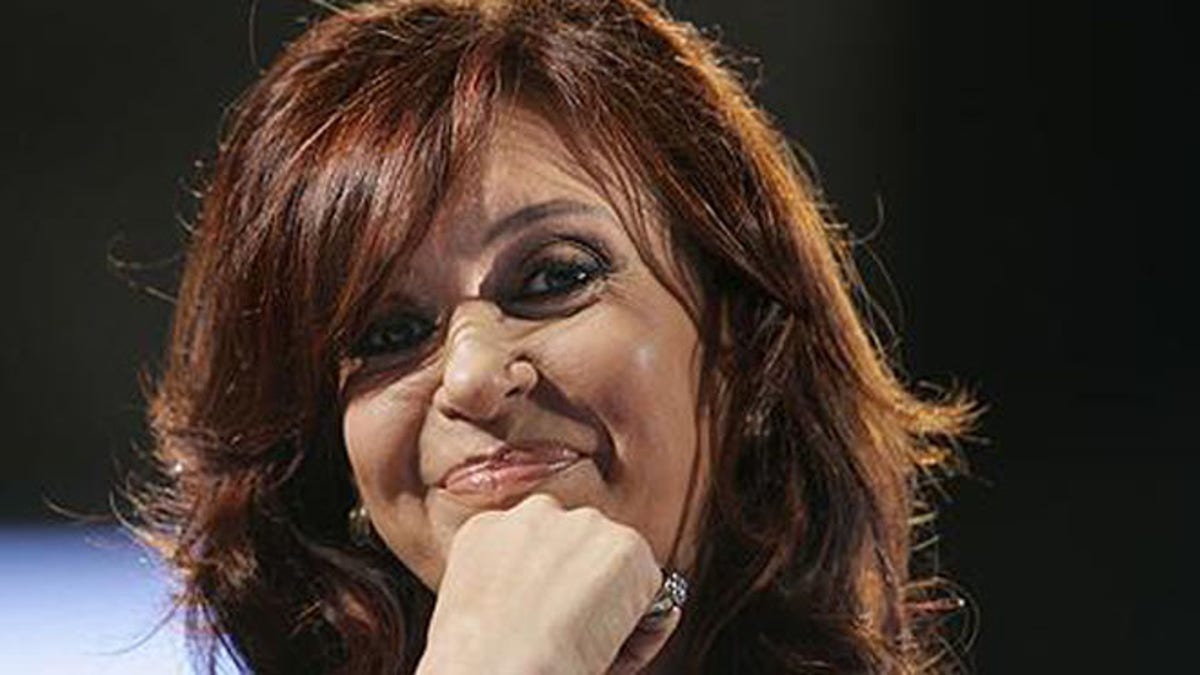
File Photo: Argentine President Cristina Fernandez de Kirchner, Friday, Oct. 5, 20007. (AP Photo/Natacha Pisarenko) (AP)
On March 13th, in a blatant act of censorship, the Argentine government ordered a live TV program hosted by journalist Marcelo Longobardi off the air. The incident took place as Néstor Kirchner's former Chief of Staff, Alberto Fernández, harshly criticized Cristina Kirchner for her attempt to amend the governing charter of the Central Bank.
Minutes after the program was cut off, CNN's former host, Alberto Padilla, took to his Twitter account saying: "Gentlemen: I was an eyewitness to the repression against the press in Argentina. Longobardi was removed from the air by order of President Kirchner”. Also through Twitter, Miami Herald columnist Andrés Oppenheimer said: "The worst part of the censure to Longobardi in Argentina is that if Alberto Padilla was not there, perhaps no one would have complained…"
Far from being President Cristina Fernández de Kirchner's first attack against the free press, this action is part of a policy intended to silence anyone who tries to expose the country's reality.
In late 2009, Cristina Kirchner pushed a new law that regulates private media, designed exclusively to concentrate every piece of information in the government's hands. Among other things, the law required certain media conglomerates to divide their shares in a very short period of time, violating all kinds of contracts and property rights.
In December 2011, immediately after being reelected, Cristina Kirchner ordered Congress to approve a bill that gives the government full control over the newsprinting paper producing company. The Inter-American Press Association immediately condemned the law.
In December of last year, the Argentine National Gendarmerie invaded the offices of the Cablevisión (a cable provider company owned by the media conglomerate “Grupo Clarín”), without a court order, causing panic among the company's employees -- a criminal action that was also condemned by the international press.
These aren't the only attacks. The Fernández de Kirchner administration only doles out government advertising to certain media outlets with sympathetic editorial lines. Following Hugo Chávez's example in Venezuela, the public television channel devotes itself exclusively to disqualify any member of the political opposition. The administration uses the tax revenue agency as a mechanism to persecute media outlets, as happened with the newspaper “La Nación.”
In this context, the saddest thing of all, as Oppenheimer said, is that if Alberto Padilla was not in the studio when the program was cut off, nobody would have heard about this case. Perhaps because of fear of retaliation -- or fear of losing the income from government advertising -- many of the most important media outlets scarcely mentioned the story.
It is important to note that C5N's owner mentioned a day after the incident occurred that the program was cut off the air because the time of transmission was over. Interestingly, there was another guest waiting to enter to the studio after Fernández, and the show was not re-transmitted after midnight, as usually happens.
These events in Argentina are part of a trend followed by countries such as Ecuador and Venezuela, where governments are constantly trying to censor anyone who dares to expose reality. In Venezuela, Chávez shut a TV station years ago and continues to censor newspapers and other TV stations; in Ecuador, Correa personally sued journalists and a newspaper because they exposed the truth; in Argentina, the government has used a combination of these elements. The ultimate goal is the same: hide reality and concentrate power.
Ezequiel Vázquez Ger is an associate at Otto Reich Associates LLC, collaborates with the non-profit organization The Americas Forum / Twitter: @ezequielvazquez
Follow us on twitter.com/foxnewslatino
Like us at facebook.com/foxnewslatino








































